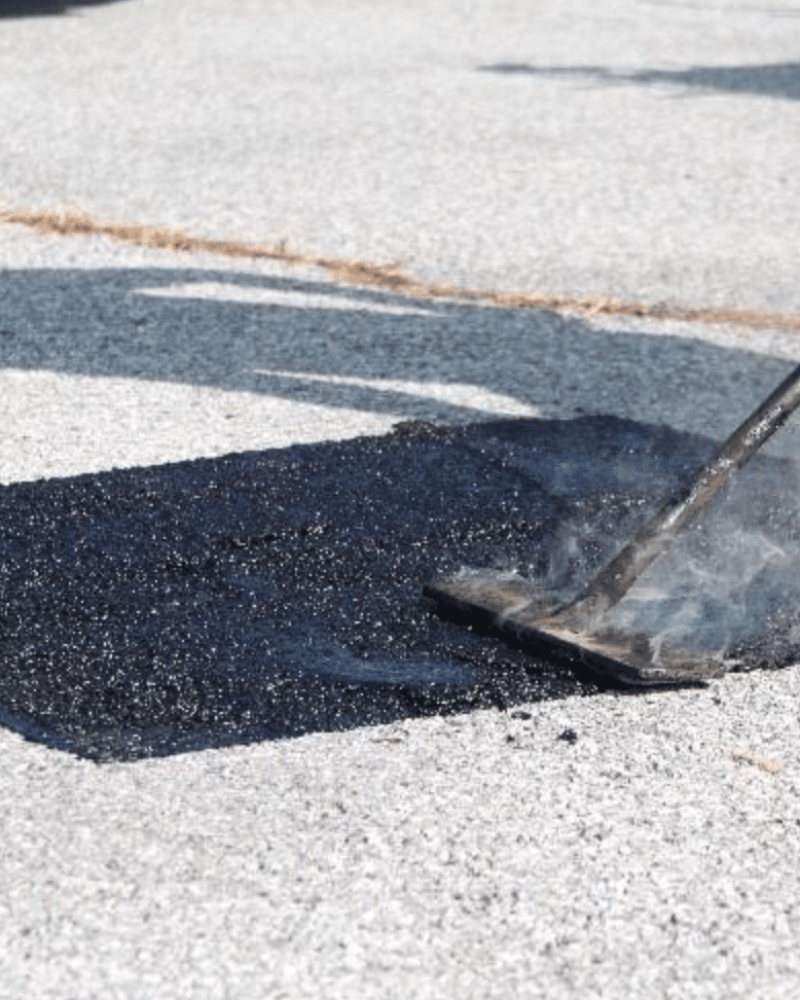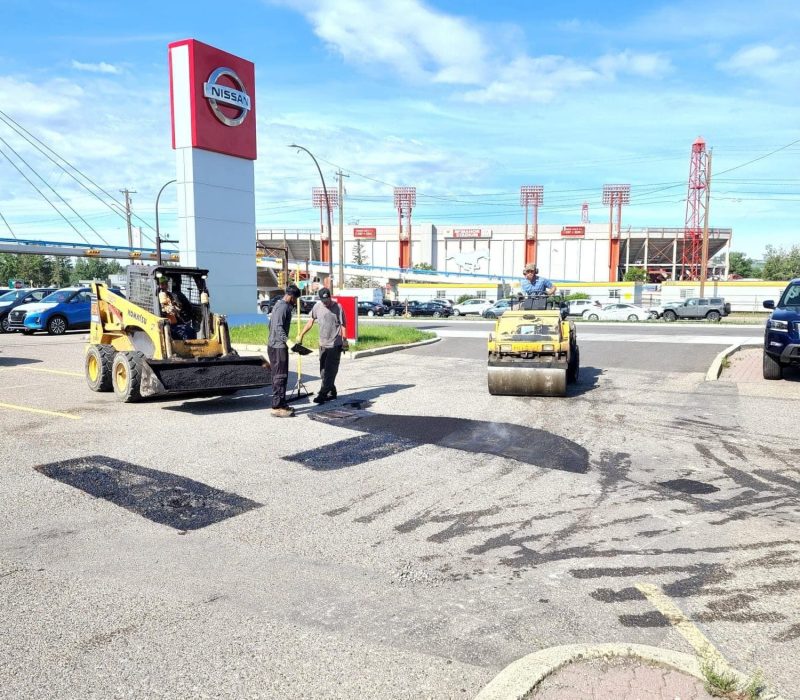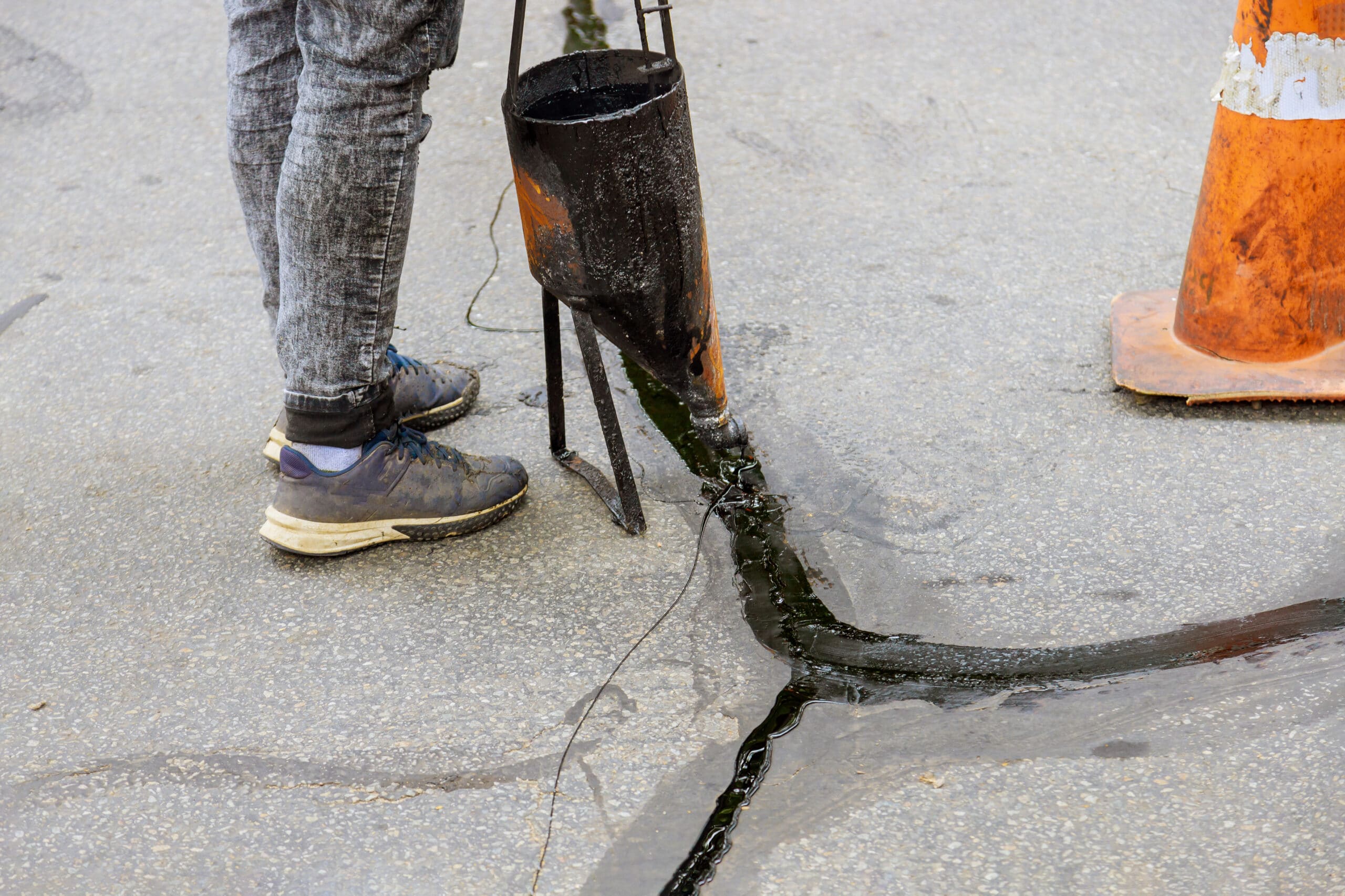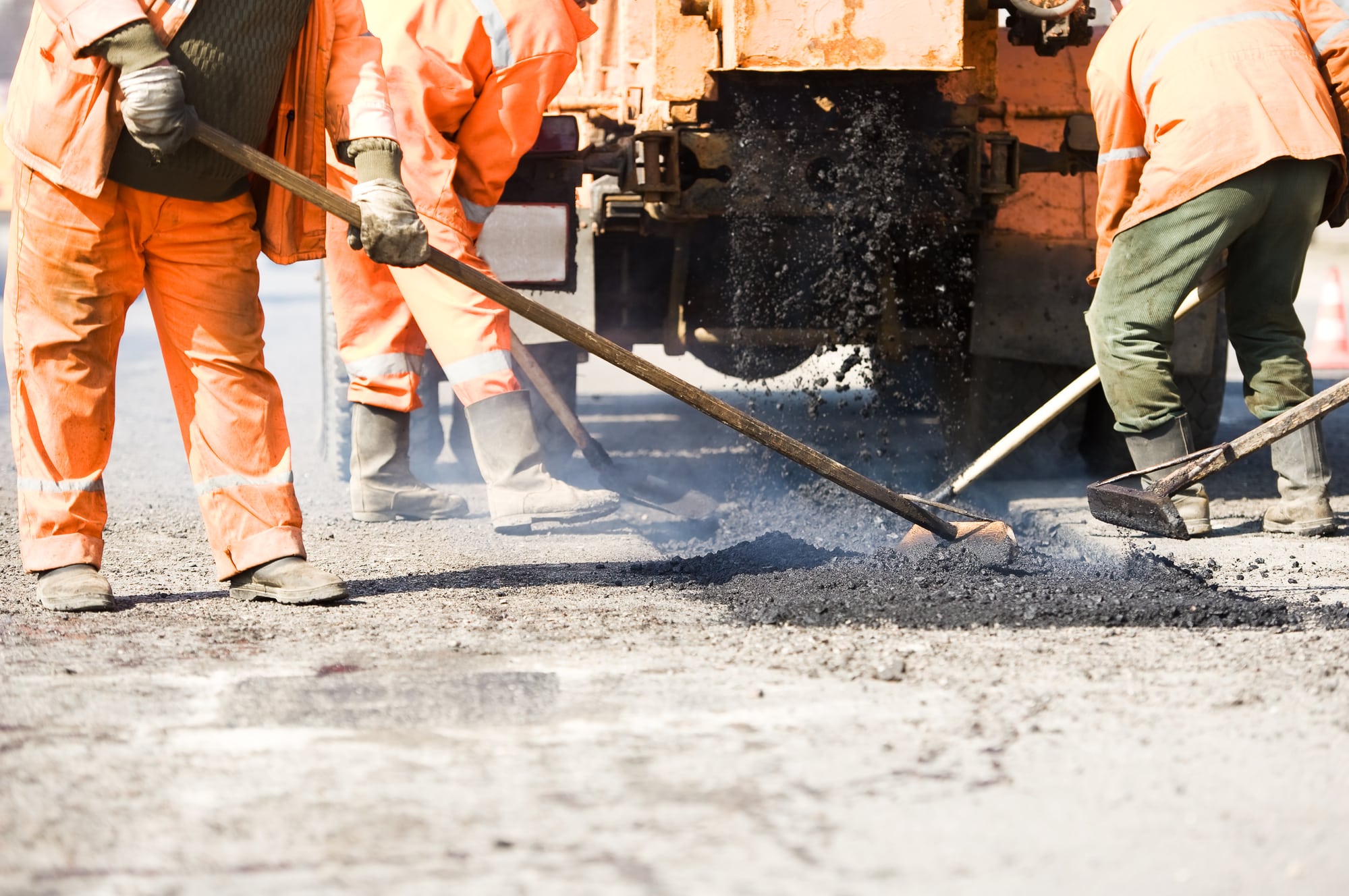Mastic Pothole Repair



About Mastic Pothole Repair
The mastic mixture is designed to fill the pothole completely, creating a smooth and level surface that is strong and durable. The tack binder is used to hold the aggregate and asphalt together, and creates a strong bond with the surrounding asphalt.
Our Products:


Benefits of Mastic Pothole Repair:
- A more permanent repair when compared to hot and cold asphalt patches, Mastic creates a stronger bond to the asphalt
- A smoother and more level repair, as the mastic mixture can be leveled and compacted
- A repair that is more resistant to heavy traffic and weathering
- A Mastic repair can be completed in a shorter time frame than a traditional asphalt repair. The Mastic is applied hot, about 375 degrees Fahrenheit or 190 degrees Celsius. As it cools it rapidly begins the curing process

Frequently Asked Questions
What is asphalt sealcoating?
Asphalt sealcoating is a process that involves applying a protective layer of sealant to an asphalt surface in order to protect it from damage caused by UV rays, water, and other environmental factors.
Why is sealcoating important?
Sealcoating helps to protect the asphalt surface from the elements, which can cause cracking, potholes, and other damage. It also helps to improve the appearance of the surface and can extend the life of the asphalt.
How often should I sealcoat my asphalt surface?
The frequency of sealcoating depends on a variety of factors, including the amount of traffic the surface receives and the local climate. Generally, it is recommended to sealcoat every 3-4 years.
After my asphalt is seal coated can I drive and walk on it?
You can usually walk on your newly coated asphalt within 6 hours. We recommend not driving on your freshly sealed asphalt for 24 to 48 hours.
Can I sealcoat my own asphalt surface?
Yes, it is possible to sealcoat your own asphalt surface, but it can be a difficult and time-consuming task. It is also important to use the correct equipment and techniques to ensure proper application and coverage, which would typically mean purchasing or renting equipment.
It should be noted that most of the product that is purchased at the big box stores is NOT commercial grade sealer and tends to deteriorate within 12 months.
What is the best time of year to sealcoat my asphalt surface?
The best time of year to sealcoat your asphalt surface is typically in the late spring or early summer, when temperatures are warm and there is little chance of rain. This allows the sealant to dry and cure properly.
What is asphalt sealcoating made from?
Asphalt sealcoating is typically made from a mixture of asphalt binder, which is a by-product of the crude oil refining process, and mineral fillers, such as fine crushed stone or sand. These ingredients are combined and heated to create a liquid sealcoating that can be applied to pavement surfaces to protect and extend the life of the asphalt. Some sealcoating products may also contain other additives, such as emulsifiers and surfactants, to improve their performance and durability. Some sealcoating products may also contain coal tar which is a by-product from the steel industry.
Is there a warranty?
Our manufacturer warranties their product JET Black for 3 years from manufacturers defects.






